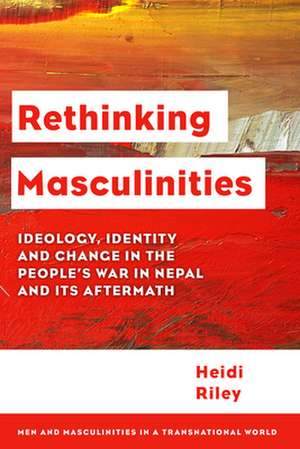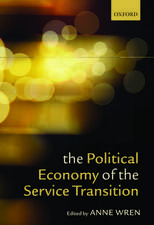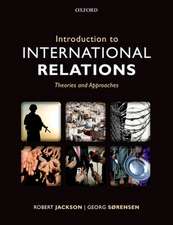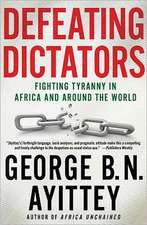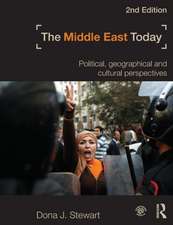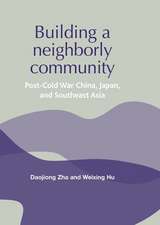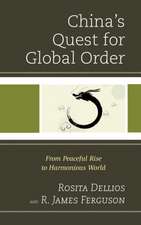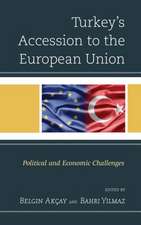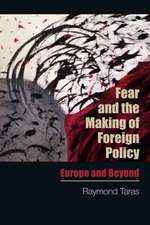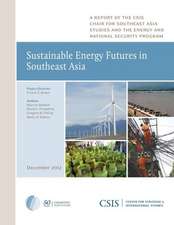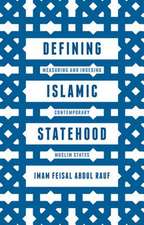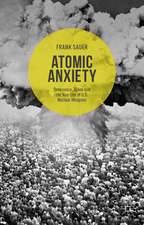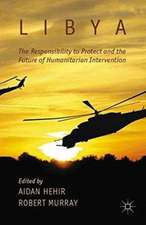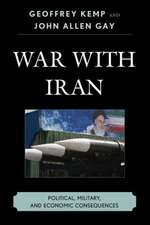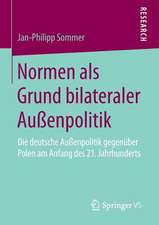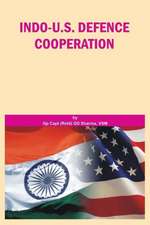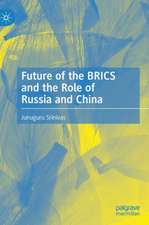RETHINKING MASCULINITIES IDEOCB: Men and Masculinities in a Transnational World
Autor HeidiLecturer/Assistant Professor Rileyen Limba Engleză Hardback – 14 dec 2021
Preț: 651.78 lei
Preț vechi: 846.46 lei
-23% Nou
Puncte Express: 978
Preț estimativ în valută:
124.73€ • 129.74$ • 102.97£
124.73€ • 129.74$ • 102.97£
Carte tipărită la comandă
Livrare economică 14-28 aprilie
Preluare comenzi: 021 569.72.76
Specificații
ISBN-13: 9781786615503
ISBN-10: 1786615509
Pagini: 248
Dimensiuni: 152 x 229 x 23 mm
Greutate: 0.52 kg
Editura: Rowman & Littlefield
Seria Men and Masculinities in a Transnational World
ISBN-10: 1786615509
Pagini: 248
Dimensiuni: 152 x 229 x 23 mm
Greutate: 0.52 kg
Editura: Rowman & Littlefield
Seria Men and Masculinities in a Transnational World
Notă biografică
Heidi Riley is Assistant Professor in International Relations in the School of Politics and International Relations, University College Dublin. She is also a member of the UCD GLOBUS research team that examines European contributions to global justice.
Heidi's main research area is in gender and armed conflict, with a particular focus on the interaction between ideology and masculinity within non-state armed groups, and the implications of this for women during and after conflict. As a secondary research area she also works on issues of negotiated settlement, with a focus on women's participation in international peace mediation. Teaching areas include: International Relations: Theory and Practice, Conflict and Conflict Resolution, Gender Studies, and Qualitative Methods.
Heidi holds a PhD from University College Dublin, an MPhil in International Peace Studies from Trinity College Dublin, and an MA Honours in International Relations from the University of Edinburgh. She is the winner of the Conflict Research Society, Cedric Smith Prize (2017) and the International Studies Association, Feminist Theory and Gender Studies Graduate paper award (2018). In addition she was awarded the Irish Research Council Postgraduate Scholarship for her PhD research.
Aside from academic credentials, Heidi previously worked for the Conflict Resolution Unit at the Irish Department of Foreign Affairs and Trade, where she was part of the team implementing the Irish National Action Plan on UNSCR 1325. In addition, she has worked for a variety of Irish human rights NGOs including, Front Line Defenders and Ruhama. Her early career began in the production and technical side of the performing arts in the UK, where she worked for a variety of national and regional theatre, opera and dance companies, touring both nationally and internationally. As a result she is a strong advocate for the use of the arts in conflict resolution.
Heidi's main research area is in gender and armed conflict, with a particular focus on the interaction between ideology and masculinity within non-state armed groups, and the implications of this for women during and after conflict. As a secondary research area she also works on issues of negotiated settlement, with a focus on women's participation in international peace mediation. Teaching areas include: International Relations: Theory and Practice, Conflict and Conflict Resolution, Gender Studies, and Qualitative Methods.
Heidi holds a PhD from University College Dublin, an MPhil in International Peace Studies from Trinity College Dublin, and an MA Honours in International Relations from the University of Edinburgh. She is the winner of the Conflict Research Society, Cedric Smith Prize (2017) and the International Studies Association, Feminist Theory and Gender Studies Graduate paper award (2018). In addition she was awarded the Irish Research Council Postgraduate Scholarship for her PhD research.
Aside from academic credentials, Heidi previously worked for the Conflict Resolution Unit at the Irish Department of Foreign Affairs and Trade, where she was part of the team implementing the Irish National Action Plan on UNSCR 1325. In addition, she has worked for a variety of Irish human rights NGOs including, Front Line Defenders and Ruhama. Her early career began in the production and technical side of the performing arts in the UK, where she worked for a variety of national and regional theatre, opera and dance companies, touring both nationally and internationally. As a result she is a strong advocate for the use of the arts in conflict resolution.
